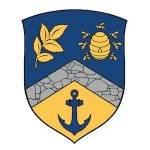Sparhawk Academy is committed to the safety of its students. Below is the personal conduct policy that all faculty, staff and volunteers must adhere to. The policy is taken directly from the Faculty Handbook.
PROFESSIONAL CONDUCT
The Sparhawk Academy faculty always maintains a respectful tone towards students. This tone includes avoiding even the appearance of sexual inappropriateness in the faculty student relationship. In addition, faculty should make use of separate bathroom facilities from students. At the same time, the nature of our mentoring program, and of the overall faculty–student relationship, is such that as a school we encourage personal mentoring, which requires some degree of privacy in order to exist. The open campus and windows on all classroom, office, and mentoring room doors provide opportunities for faculty to respect the privacy of the students while ensuring that meetings and conversations happen in a manner open to the public eye.
The faculty not only allows for these meetings to take place, but even encourage a mentoring relationship that transcends the classroom or the sports field. However, all faculty members follow certain prudential measures when arranging and proceeding with mentoring meetings of any type. One example of this is that faculty would not give individual lower or middle school students a ride – they may take a group of them as on a field trip – unless there is a compelling need to do so and the faculty member is giving the student a ride in response to a parental request.
Overnight trips provide a natural time for mentoring relationships to grow outside of the classroom. To ensure the protection of both the students and faculty, the following policies will be used. Every trip will include no fewer than two adults directly affiliated with Sparhawk Academy. Adults on overnight trips will not share tents, hotel rooms, or bedrooms with the participating boys. In the case of dire emergencies, faculty are expected to show prudent judgement.
There is no need for a faculty member to ever engage in social media interaction with students. Although faculty may obviously have their own Facebook accounts (or whatever media platform a faculty member may belong to) and students may also have the same social media conduit, the faculty and the students’ social media worlds ought never to intersect. At the same time, there are occasions when a faculty member may contact students directly via e-mail or cell phone, even using the students’ personal accounts and cell-phone numbers. This type of communication is normal, and even necessary.
Any faculty member who in any way becomes aware of sexual impropriety between an employee of the school and a student, whether in official school activities or otherwise, or who has good reason to think there may be some impropriety, will immediately report it to the Head of School, who will inform the Chairman of the Board of Directors.
The Head of School, together with another faculty member selected in consultation with the Chairman, will investigate the allegation and inform the Chairman. If the Head of School and the Chairman believe the allegation to be true, they will take all the steps that are necessary to remedy the situation, including dismissing the employee. However, if they find that the allegation is without basis, they will take steps to clarify the circumstances to the parties involved and, if necessary, work to clear the name of the unfairly accused. At all times, the Head of School and the Chairman of the Board will ensure that the legal requirements regarding reporting to civil and criminal authorities are fulfilled. In general, anonymous allegations will not be considered to be credible.
Non-faculty staff members are considered faculty members for purposes of these guidelines. This policy in no way intends to limit state requirements that employees have to report reasonable suspicions of abuse of a minor.
